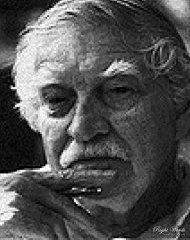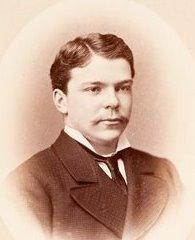May Quotes - Page 125
Yukio Mishima (1977). “The Way of the Samurai: Yukio Mishima on Hagakure in Modern Life”, Basic Books (AZ)
Or shipwrecked, kindles on the coast False fires, that others may be lost.
William Wordsworth (1994). “The Collected Poems of William Wordsworth”, p.534, Wordsworth Editions
William Thomas Councilman (1913). “Disease and its causes”
William Shakespeare (2016). “The New Oxford Shakespeare: Modern Critical Edition: The Complete Works”, p.1216, Oxford University Press
William Shakespeare (2012). “Much Ado About Nothing Thrift Study Edition”, p.33, Courier Corporation
Great men may jest with saints; 'tis wit in them; But, in the less foul profanation.
'Measure for Measure' (1604) act 2, sc. 2, l. 127
To do evil that good may come of it is for bunglers in politics as well as morals.
Benjamin Franklin, William Penn (2008). “Franklin's Way to Wealth and Penn's Maxims”, p.73, Courier Corporation
William Makepeace Thackeray (2013). “Delphi Complete Works of William Makepeace Thackeray (Illustrated)”, p.540, Delphi Classics
Though familiarity may not breed contempt, it takes off the edge of admiration.
William Hazlitt (2015). “Delphi Collected Works of William Hazlitt (Illustrated)”, p.1464, Delphi Classics
Wilkie Collins (2015). “The Moonstone (Mystery Thriller Classic): Detective story from the prolific English writer, best known for The Woman in White, No Name, Armadale, The Law and The Lady, The Dead Secret, Man and Wife, Poor Miss Finch, The Black Robe and more”, p.203, e-artnow
Wassily Kandinsky (2015). “Kandinsky”, p.23, Parkstone International
Walter Scott, Sir Walter Scott (1841). “The Poetical Works of Sir Walter Scott, Bart”, p.652







